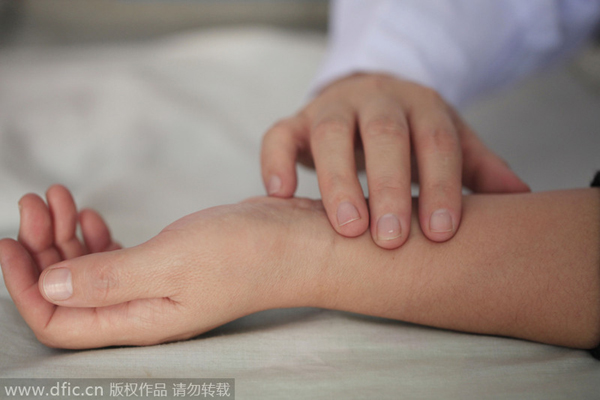Period leave requires more consideration
(China Daily) Updated: 2016-02-18 07:44
 |
|
A traditional Chinese medicine physician takes a patient's pulse at a clinic in Beijing, Oct 16, 2014. TCM diagnosis aims to trace symptoms to patterns of an underlying disharmony, by measuring the pulse, inspecting the tongue, skin, and eyes, and looking at the eating and sleeping habits of the person as well as many other things.[Photo/IC] |
Anhui province in East China is proposing to introduce a special regulation that employers should give one or two days paid leave to female workers suffering abnormally heavy menstrual bleeding or severe period cramps if they have a prescription from the doctor. Beijing Times said:
The regulation, no matter if it can efficiently be carried out, demonstrates the local government's concern for the overall well-being of women. But it is worth further discussion if it is necessary to specify the leave is for menstruation in the legislation.
First of all, as a doctor's prescription is required as proof of inability to work, it can be taken as sick leave, which is normally permitted by most employers.
Second, based on the current labor system, the majority of businesses only provide workers the basic wage when they are off sick. With absence for illness, employees usually see their allowances and bonuses affected, so the benefits of female workers are likely to be reduced if they take menstrual leave.
Therefore, the legislation as it stands probably won't have much practical significance.
To show special care for women, the regulation should specify they are entitled to menstruation leave in addition to their existing sick leave entitlement.
However, if forced to pay women taking a couple of days paid leave every month, employers will in all likelihood hire fewer female workers.
More research needs to be done to find the best way for women to benefit from menstruation regulations.











